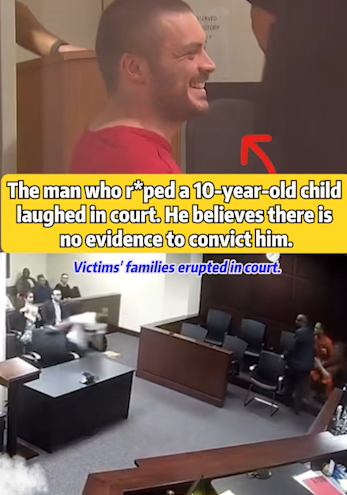
Justice Denied? Man Accused of Assaulting a Child Laughs in Court, Sparking Outrage
A recent court case has drawn widespread shock and condemnation after a man accused of sexually assaulting a 10-year-old child was seen laughing during the trial. His apparent nonchalance has deeply upset the victim’s family and raised urgent questions about how justice is served in sensitive cases involving children.
The Incident
The accused, charged with the brutal assault of a minor, reportedly displayed disturbing behavior during the proceedings. Despite the gravity of the charges, he was caught on camera laughing and showing no remorse, infuriating the courtroom and viewers alike.
Families and Public Outrage
The victim’s family was visibly devastated and expressed outrage over the defendant’s attitude. Many have criticized what they see as a failure of the justice system to adequately punish perpetrators and protect vulnerable victims.
This case has sparked broader discussions about courtroom decorum, the psychological impact on victims, and how society handles allegations of this nature.
Legal Challenges
The defendant’s defense claims there is insufficient evidence to convict him, highlighting challenges prosecutors often face in sexual assault cases — particularly those involving children. These hurdles can result in prolonged trials, emotional distress for victims, and, in some cases, the inability to secure a conviction.
The Bigger Picture
This heartbreaking case sheds light on the difficulties in balancing legal standards of proof with the emotional and psychological needs of victims and their families. It also raises awareness about the importance of:
- Providing robust support systems for survivors
- Ensuring sensitive handling of such cases in court
- Educating the public on the realities and challenges of prosecuting sexual assault crimes
A Call for Change
Advocates emphasize the need for reform in how sexual assault cases are prosecuted and how victims are supported. They urge courts to consider the broader impact of courtroom behavior on survivors and to implement stronger protections to uphold the dignity and safety of victims.



